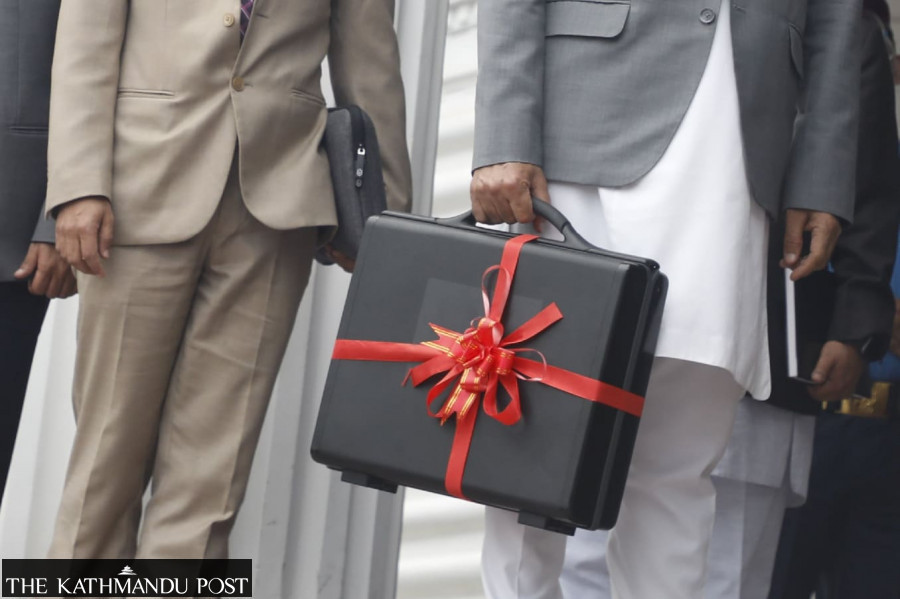Editorial
All talk and no change
The budget speech is not a dictum carved in a stone; it must reflect deep engagements in a palimpsest.
“Listen to all opinions, but act on your own.” Finance Minister Prakash Sharan Mahat seems to have internalised this oft-misinterpreted adage a bit too religiously. For, after weeks of post-budgetary analyses in Parliament, all that the finance minister has done is turn deaf ears to the comments and criticisms and is trying to bulldoze the parliamentary process to get the budget passed. All through the parliamentary debates, Minister Mahat has carried an air of intellectual arrogance unbecoming of a leader of a patchwork coalition government that represents contesting ideologies.
Often, even as opposition leaders made fairly constructive criticisms, Minister Mahat made grumpy faces, even at times donning a mildly disdainful grin. Such was his bearing while responding to former foreign minister Bimala Paudyal Rai’s criticism that the budget had been hard on those who looked forward to buying mid-range electric vehicles. He had not seen low-income families who could afford an Rs4 million electric car, the minister had sheepishly retorted, while failing to explain how his revision of tax rates made sense amid a climate emergency when replacing fossil fuel-guzzling vehicles with electric ones is a necessity.
In his failure to address oppositional voices, the finance minister has failed to acknowledge that a budget speech is not an irreversible dictum of a mediaeval despot carved in stone. Rather, it should be a palimpsest bearing the marks of a continuum of dialogues, revisions and afterthoughts emanating from an argumentative culture. In its fallibility lies the true strength of any thought or speech, not least a federal budget speech that represents the aspirations of 30 million Nepalis. Regrettably, the finance minister seems to take the oppositional voices as no more than a counterbalance in the competitive parliamentary process that can be passed over if he has the numerical majority on his side.
In fact, opposition leaders are not the only ones calling for a revision of the budget. Deputy Prime Minister and Home Minister Narayan Kaji Shrestha was being sensible when he said in Parliament on Sunday that the weeks of post-budget analyses made no sense if the budget was going to be passed without any corrections. Other leaders who have made some sharp interventions on the budget include Mahat’s own party General Secretary Gagan Kumar Thapa, and Mahat’s former partyman-economist Swarnim Wagle who continues to share his passion for neoliberal capitalist policies.
As a crucial authority mandated with using the country’s resources to maintain macro- and micro-economic stability amid a deep economic crisis, the finance minister would do well to heed constructive criticism within and beyond Parliament. The members of parliament are not just talking heads out there to criticise the finance minister’s budgetary provisions for nothing. They are thinking, living representatives of the people from across the country. Their opinions should be heard as the voices of the millions of people that make up Nepal. If there are some arcane parliamentary regulations preventing timely revision of the budget, they must be changed, and the onus for doing so again lies with the ruling parties, including Mahat’s Congress.




 10.12°C Kathmandu
10.12°C Kathmandu













